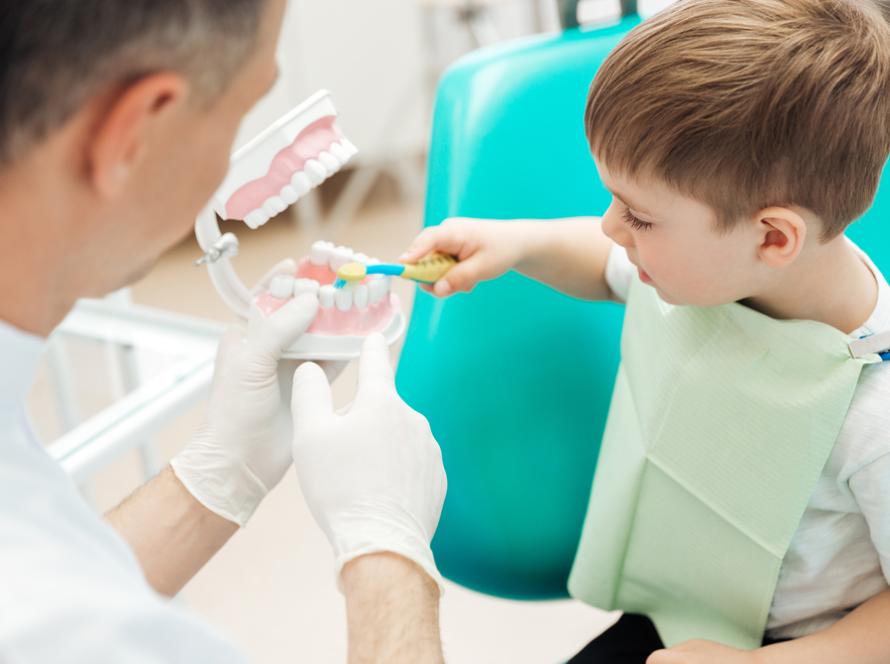Children receiving chemotherapy or undergoing blood or marrow transplants face a higher risk of oral infections due to weakened immune systems and the damaging effects of treatment on the cells inside the mouth. Daily mouth care becomes more than a hygiene routine—it becomes essential for overall health and treatment care. (Source: Sick Kids- About Kids Health, Mouth care for children receiving chemotherapy or undergoing blood/marrow transplant, By SickKids staff, https://www.aboutkidshealth.ca/healthaz/oncology/mouth-care-for-children-receiving-chemotherapy-or-undergoing-bloodmarrow-transplant/?language=en ).
Toronto Kids Dental shares, “When children undergo cancer treatment, their oral tissues are extremely fragile. That’s why caring for kids’ teeth goes far beyond brushing—it’s part of their medical protection plan. Thoughtful, consistent kids’ oral hygiene routines can help prevent serious complications and offer children comfort during a very difficult time. Comfort comes not only from reducing painful sores and inflammation, but also from creating a gentle routine that gives children a sense of normalcy, control, and relief. Every small act of care—whether it’s using a soft toothbrush or a soothing rinse—helps protect their smile and ease discomfort, both physically and emotionally.”
Importance of Daily Oral Care
Children going through treatment should follow a strict oral care regimen, including brushing the teeth and tongue two – three times daily with a soft toothbrush and fluoride toothpaste. Even when eating is minimal, oral bacteria can still pose a risk.
Toronto Kids Dental comments, “Daily kids’ dental cleaning is crucial—even when a child isn’t eating normally. Saliva flow and oral immunity are compromised during treatment, so plaque and bacteria accumulate faster. A steady brushing routine with the right technique and fluoride support helps maintain balance and protect vulnerable tissues.”
Pre-Treatment Dental Assessment
Before beginning chemotherapy or a transplant, children should ideally see a dentist to assess for potential infection sources like cavities or gum disease. This step allows dentists to coordinate with the child’s healthcare team and establish a custom oral care plan.
Toronto Kids Dental expresses, “A thorough evaluation by a qualified children’s dentist helps spot risks before they become emergencies. It’s more than a checkup—it’s a strategic checkpoint to identify potential problem areas. We also guide families on modifying kids’ oral care routines based on their child’s treatment type, immune status, and ability to tolerate different interventions.”
Adapting Brushing Techniques
During treatment, children’s mouths can become sensitive or inflamed. Using a very soft toothbrush and a pea-sized amount of fluoride toothpaste can help make brushing tolerable. Flossing may be limited based on the child’s immune and platelet levels.
Toronto Kids Dental notes, “When oral tissues are delicate, brushing becomes a skill in itself. We teach families how to use soft, angled strokes with gentle pressure to reduce discomfort while keeping kids’ oral hygiene on track. It’s also important to know when to pause flossing or adapt techniques based on how the child is feeling day-to-day.”
Managing Sore or Bleeding Mouths
If a child’s mouth becomes too sore or begins to bleed, regular brushing may not be possible. In those cases, rinsing with a baking soda solution or gently wiping the inside of the mouth with a damp cloth can help maintain hygiene without aggravating pain.
Toronto Kids Dental highlights, “Painful or bleeding mouths require a shift in strategy. Using a baking soda rinse is a gentle but effective way to neutralize acids and reduce bacteria. When brushing isn’t feasible, even a soft cloth wipe-down can make a difference. We always emphasize that caring for kids’ teeth means meeting them where they are—comfort and consistency are key.”
Long-Term Impact on Teeth and Gums
Cancer treatment during early childhood can impact how teeth form, potentially affecting enamel strength or leading to delayed eruption. Children who undergo treatment may be more prone to cavities and need long-term monitoring.
Toronto Kids Dental mentions, “We know that chemotherapy and radiation can interrupt dental development, especially in younger patients. Some kids may face enamel defects, root abnormalities, or delayed tooth growth. That’s why we build long-term kids’ oral care plans that anticipate these challenges, emphasizing prevention, protective restorations, and regular monitoring with a children’s dentist.”
Coordination Between Dental and Medical Teams
Hospitals that treat childhood cancer often have dental teams working closely with oncologists to monitor oral health during treatment. This coordination helps ensure oral issues are caught early and managed safely.
Toronto Kids Dental remarks, “Collaboration between dental and oncology teams is essential for success. When everyone’s in sync, oral health is monitored continuously, and adjustments can be made quickly. This kind of teamwork supports high standards in kids’ oral hygiene, even in medically complex situations.”
Oral care plays a crucial role in the well-being of children undergoing cancer treatment. With early planning, daily maintenance, and expert dental oversight, children can be protected from the serious complications that poor oral health can cause during this critical time.
Toronto Kids Dental shares, “Supporting young patients through cancer care means paying close attention to their mouths every day. From preventive assessments to gentle kids’ dental cleaning strategies and future-focused planning, every step counts. Our message is simple: caring for kids’ teeth is healthcare—it deserves just as much attention as any other part of the treatment journey.”


